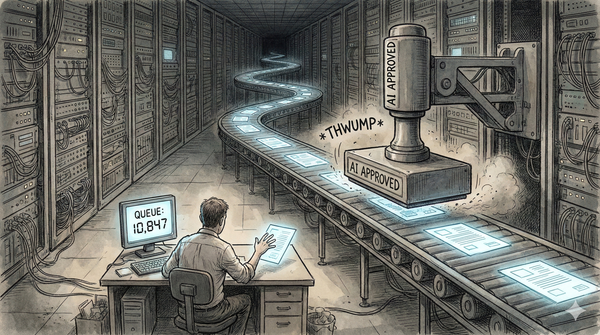Adults in Retreat: Strategic Ambiguity and the Abdication of Accountability

Why adults’ vague communication is amplifying risk, radicalizing youth, and undermining the moral health of a generation.
Summary
When faced with hard questions, too many adults—from parents to political leaders—default to strategic ambiguity, intentionally vague language used to dodge accountability. The harmful effects ripple through families, education systems, workplaces, and politics, leaving younger generations disillusioned and vulnerable. It’s tempting to blame social media for their discontent, but technology only reveals what adults have refused to acknowledge clearly: their retreat from ethical responsibility.
Using recent examples—from Robert Reich’s clarity on authoritarian threats at Columbia University, to Margaret Mitchell’s groundbreaking research on the dangers of ambiguity in autonomous AI—we illustrate why clarity is a moral imperative, and how becoming a Transitional Character can reverse intergenerational trauma, forge genuine connections, and rebuild trust.
Explore the Article and Podcast
- 💬 Interact & Chat on NotebookLM → (Explore the article through interactive chat.)
- 📖 Read the Full Article on Google Docs →
Why Engage?
- Deep Understanding: Explore complex ideas like strategic ambiguity, ethical accountability, and generational trauma at your own pace.
- Interactive Insight: Use the NotebookLM chat to ask personalized questions, gain specific clarity, and apply insights directly to your personal or professional life.
- Convenient Listening: Stream the discussion on Spotify for an audio breakdown perfect for commutes or downtime.
Take Action: Become a Transitional Character
To reject strategic ambiguity, consider these explicit steps:
- Notice: Identify ambiguity in conversations at home, work, and public life.
- Challenge: Politely but firmly ask for clarity.
- Model: Lead by example, communicating with explicit honesty.
- Mentor: Replace vague “don’t” statements with clear, reasoned guidance.




